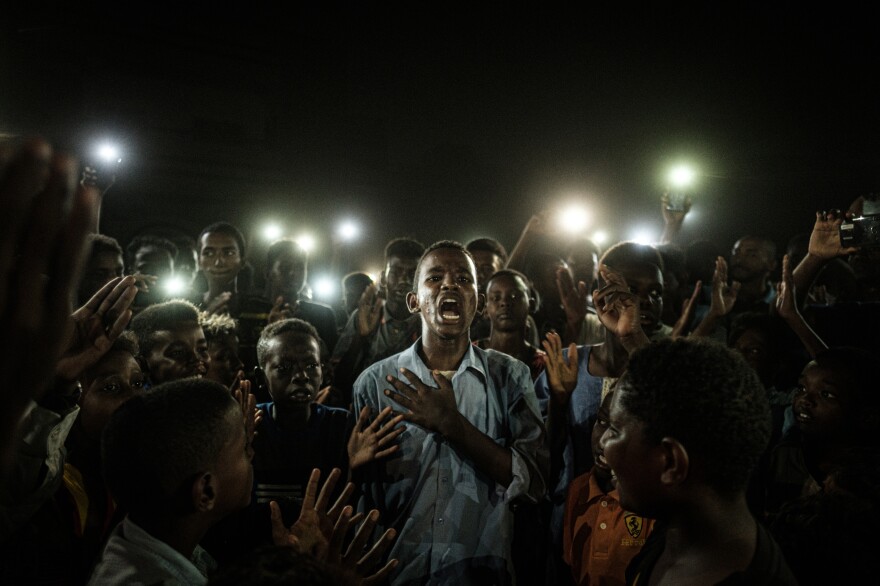The World Press Photo Foundation announced on Thursday the winners of its 2020 photo and storytelling contests, with an electrifying image of a young man reciting poetry at a protest in Sudan taking the top photo prize.
Photographer Yasuyoshi Chiba's image "Straight Voice" captures the young man amid a blackout in Khartoum. His face is illuminated by the cell phones of protestors, who were rallying to demand that Sudan's military leaders hand over power to civilians.
Chiba is originally from Japan and is currently chief photographer for East Africa and the Indian Ocean for Agence France-Presse.
"The place was a total blackout. Then, unexpectedly, people started clapping hands in the dark," Chiba recalled in a statement. "People held up mobile phones to illuminate a young man in the center. He recited a famous protest poem, an improvised one."
"Between his breath, everybody shouted 'thawra', the word revolution in Arabic. His facial expression and voice impressed me, I couldn't stop focusing on him and captured the moment," he added.

The prize for top photo story went to French photographer Romain Laurendeau for his work documenting the lives of young people in Algeria, many of whom led a protest movement. Laurendeau shot "Kho, the Genesis of a Revolt" over a span of five years, focusing on the everyday lives of working-class youth.
"It was impossible for a part of me not to recognize myself in these young people," Laurendeau says of his story. "They are young but they are tired of this situation and they just want to live like everyone else."
"Battleground PolyU," the winner for Photo Interactive of the Year, captures tense moments at the height of protests in Hong Kong that took place in the summer and fall of 2019. The video was shot by DJ Clark, who works at China Daily Asia Pacific.
The video captures moments in 360 degrees, and takes place mostly at The Hong Kong Polytechnic University, where students led key protests.
"I had been capturing the protests for about six months up until the point the PolyU demonstrations happened," Clark recalled. "During that process I had been playing around with equipment and trying to get something that worked.
"360 cameras are very light-weight cameras and I could capture action when I was in the midst of it," Clark added. "The biggest thing about this movie for me is the opportunity for future audiences to immerse themselves in the experience and understand what it was like to be there."
World Press Photo awarded the top prize for online video to "Scenes from a Dry City," a documentary set in and around Cape Town, South Africa which focuses on the area's water crisis. It highlights the impact of climate change on the crisis, and how the problem is worsening existing social inequities.
The documentary is a collaboration between Simon Wood and Francois Vernster, two filmmakers from South Africa.
"Simon and I were both astounded when we read about the prospect of day zero, the day when the taps will be turned off, arriving," Vernster said. "I think the first time it was mentioned was the year we made the film. The predictions were that the day will be by March already. ...We thought this would be a good opportunity to give insight into Cape Town's inequality."
Copyright 2022 NPR. To see more, visit https://www.npr.org.



